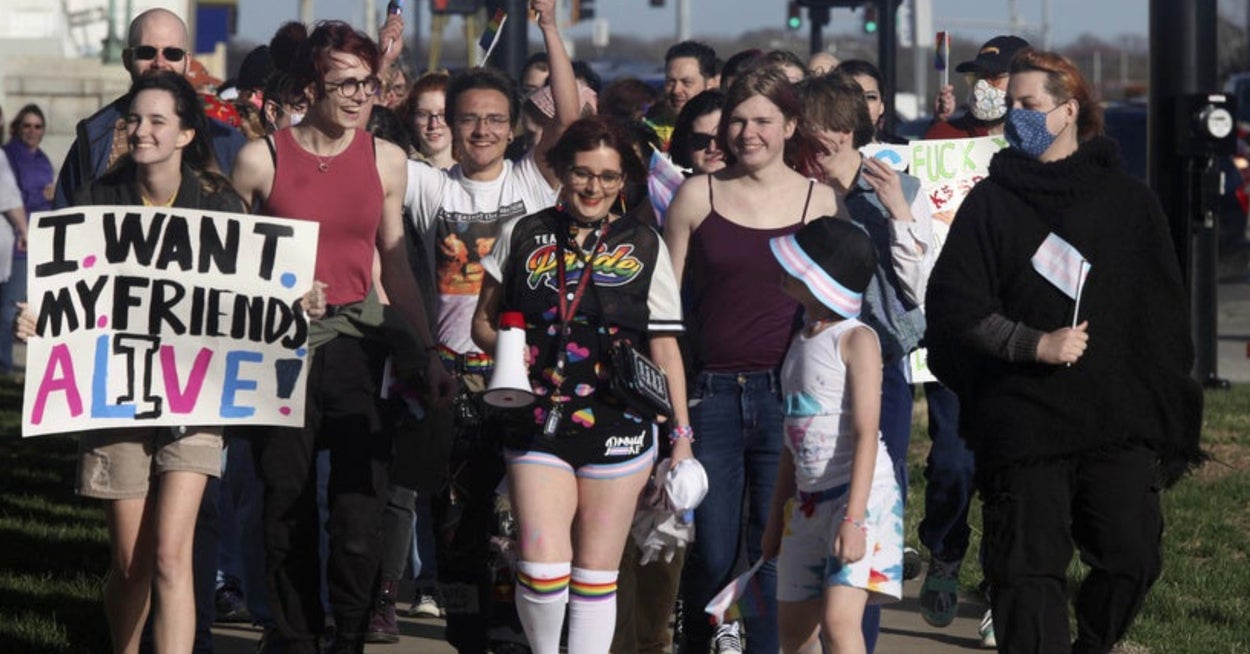In a recent legislative move that has sparked widespread controversy and debate, Kansas has passed a bill which has significant implications for the transgender community, as well as for the general climate of inclusiveness in public spaces within the state. Wasinger, one member involved, did not specifically address inquiries from BuzzFeed News regarding potential genital inspections as suggested by the legislation but commented generally on procedural aspects saying, “Sports physicals are done for every athlete participating in schools sports. Every child in Kansas must provide a birth certificate to attend school in Kansas. Both should be enough for any student.”
The bill in question claims to be striving towards fairness in competition among cisgender women and girls. However, it raises substantial questions about inclusivity and respect for individual rights. Despite the rhetoric surrounding the need for such measures, factual data points to a glaring discrepancy in the proponents’ argument: transgender female athletes constitute an exceedingly small fraction of the sports community. According to statistics from the Kansas State High School Activities Association, there are only three transgender girls who currently compete in high school sports statewide.
Adding to the controversy, Kansas legislators also passed another separate bill, SB 180, which envelops a collection of stringent limitations that affect the daily lives of transgender individuals at multiple levels. This includes the prohibition of transgender people using public restrooms and locker rooms that align with their gender identity, and a ban on altering name and gender markers on driver’s licenses. The legislative text defines sex strictly as “either male or female, at birth,” which critics argue could lead to the legal erasure of transgender, gender-nonconforming, and intersex identities. The so-called “Women’s Bill of Rights,” as referred to by Republican advocates of the bill, sidesteps the complexities and realities of gender that go beyond mere biological determinism.
The political landscape in Kansas enables such legislation to not only be proposed but also be passed with relative ease, as Republicans hold over a two-thirds majority in the state, which effectively allows them to override any vetoes from Democratic Governor Kelly. This political hegemony crystallizes the often partisan nature of transgender rights legislation in the United States today.
Kansas’s legislative actions are not isolated incidents but part of a broader national trend where multiple states, predominantly with Republican majorities, have introduced or passed laws that restrict the rights of transgender individuals. Just a week prior to Kansas’s decision, Kentucky’s Republican-controlled legislature overrode the Democratic governor’s veto on what has been dubbed an “omnibus anti-trans bill”. This comprehensive and restrictive bill banned gender-affirming care for trans youth, restricted their use of bathrooms consistent with their gender identity, and even allowed school officials to refuse to recognize students’ chosen pronouns.
The passage of such legislation is often justified under the guise of protecting the public or upholding traditional values, yet they pose undeniable threats to the rights and well-being of transgender individuals. Critics argue that these laws do not merely target specific aspects of public interaction but collectively seek to negate the identity and existence of transgender people, reducing them to their biological attributes at birth without regard to their lived experience or personal identity.
Barring intervention from judicial authorities, the Kansas sports ban is scheduled to take effect on July 1. This imminent implementation date adds urgency to the discussions and actions of both supporters and opponents of the bill. Legal challenges are a plausible and likely course of action, given the significant constitutional and civil rights questions raised by such legislation.
In light of these legislative trends, advocates for transgender rights, alongside civil liberties organizations, are bracing for continued challenges at both the state and federal levels. These groups emphasize the importance of holistic understandings of gender and advocate for policies that promote inclusivity and respect for individual identity, rather than those that enforce arbitrary and restrictive definitions of gender.
As these legislative battles unfold, the impact on affected individuals and the broader implications for American society’s approach to diversity and inclusion remain key points of concern. The outcomes of such legal and societal debates will likely influence the landscape of civil rights in America, particularly concerning the intersectionality of gender identity, personal rights, and public policy in the coming years.









